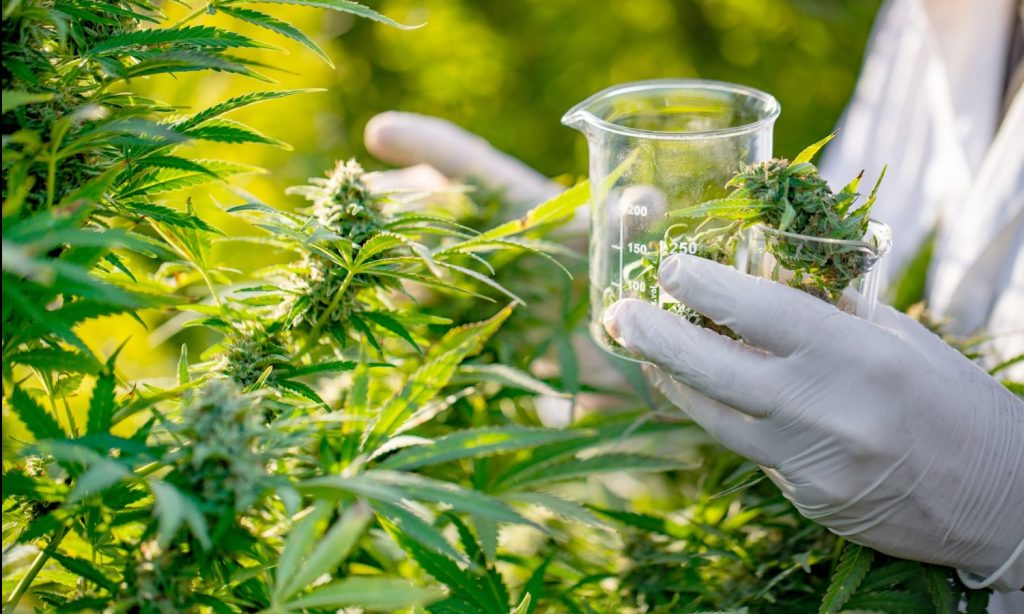WeedLife News Network
DEA Hit With Another Lawsuit From Scientists Seeking to Research Cannabis

The time is nigh for the DEA to cooperate in ensuring that medical marijuana research can move forward. Finally.
On December 3, 2020, MAPS (the Multidisciplinary Association for Psychedelic Studies) issued a press release regarding a lawsuit filed against the DEA and the Attorney General to “compel issuance of licenses to manufacture marijuana for clinical trials and potential FDA approval.” We have written about MAPS and its 35 years of advocacy and engagement with DEA before, and we are big fans of the nonprofit.
The announcement of this lawsuit comes on the heels of the United Nations Commission for Narcotic Drugs (CND) voting to accept the World Health Organization’s (WHO) recommendation to remove cannabis and cannabis resin for medicinal purposes from Schedule IV of the 1961 Single Convention on Narcotic Drugs. The U.S. had already confirmed it would support the WHO recommendation and published a statement about its rationale for the vote:
“The vote of the United States to remove cannabis and cannabis resin from Schedule IV of the Single Convention while retaining them in Schedule I is consistent with the science demonstrating that while a safe and effective cannabis-derived therapeutic has been developed, cannabis itself continues to pose significant risks to public health and should continue to be controlled under the international drug control conventions. Further, this action has the potential to stimulate global research into the therapeutic potential and public health effects of cannabis, and to attract additional investigators to the field, including those who may have been deterred by the Schedule IV status of cannabis.”
In MAPS’ announcement of the lawsuit, it points out that “[e]fforts to conduct meaningful research into cannabis medicines have been blocked for decades; the continued obstruction is causing suffering for people with serious conditions,” which indicates the timeliness of this lawsuit in relation to the CND’s recent vote. According to MAPS and the lawsuit, the DEA has failed to process more than thirty outstanding applications to develop cannabis for research purposes for more than four years despite administrative guidance. The press release outlines the nature of the lawsuit as follows:
“Nearly 20 years after Dr. Lyle Craker of the University of Massachusetts – Amherst first applied for a license to develop a consistent, reliable pharmaceutical cannabis product to address the needs of patients with serious illnesses. Despite broad public support for legal, regulated access to medical marijuana, as well as new DEA policy pronouncements and an opinion by the U.S. Department of Justice that the Agency refused to publicly disclose, the DEA has continued to prevent the processing of license applications in violation of the Administrative Procedures Act and contravention of its own administrative guidance. Dr. Craker, supported by the Multidisciplinary Association for Psychedelic Studies (MAPS), has filed a lawsuit in the U.S. District Court in Massachusetts to compel the Drug Enforcement Administration (DEA) to end their delay and process marijuana producer and manufacturer license applications thereby allowing sanctioned scientific research toward a viable medical cannabis pharmaceutical product to proceed.”

Photo by CasarsaGuru/Getty Images
Under the Controlled Substances Act (CSA), manufacturers of all Schedule I controlled substances, including marijuana, must be licensed by the DEA. Currently, and since 1968, the only federal license issued to provide cannabis for clinical research purposes belongs to the University of Mississippi and is supervised by the National Institute on Drug Abuse (NIDA).
According to the lawsuit, and widely discussed opinion throughout the industry, the marijuana provided by the University of Mississippi and NIDA is unfit for clinical research due to “poor quality, unstable supply, and limited variability that in no way emulates the types of cannabis currently available through either state-regulated markets or informal markets where regulated supply is unavailable.”
In addition, this limited, poor quality supply of marijuana is only for permitted use in research and not in commercial sales, meaning it cannot be used in FDA-regulated Phase 3 studies which must be conducted with the exact drug, manufactured under Good Manufacturing Processes, that would be marketed.
The goal in compelling the DEA to process these outstanding license applications is to allow for additional research into the potential medical benefits and uses of marijuana – something that in the U.S. has undeniably become an issue with bi-partisan support, yet remains mindbogglingly difficult to achieve through government channels. The results of the November election approving cannabis legalization measures across the board in the U.S., coupled with the CND’s vote to remove medicinal cannabis from Schedule IV, indicates that the time is nigh for the DEA to cooperate in ensuring that medical marijuana research can move forward. Finally.
Copyright
© 420 Intel
When you subscribe to the blog, we will send you an e-mail when there are new updates on the site so you wouldn't miss them.

